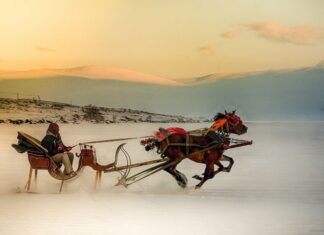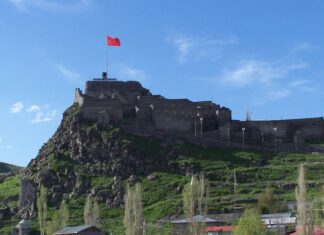Saksagan
An Oracle That Confirms the Nature of Egypt
My understanding of the true extent of Egypt is supported by a message given by an oracle at the shrine of Ammon. What makes...
Questioning the Ionian View of Egypt
If my understanding of these matters is correct, then the Ionians are wrong in what they say about Egypt. But if, on the other...
The Cappadocians and Their Land
The people known today as Cappadocians were called Syrians by the ancient Greeks. In earlier times, before the Persians became powerful, these people were...
Croesus Misunderstands the Oracle
At this time, King Croesus made a serious mistake. He misunderstood the meaning of the oracle he had received. Believing that the message promised...
Croesus Seeks Friendship with Sparta
When King Croesus learned everything that had happened, he decided to take an important step. He sent messengers to the city of Sparta, also...
The Oracle’s Message Changes the Course of War
As soon as King Alyattes heard the words of the oracle from Delphi, he acted without delay. The oracle had clearly stated that his...
The Long War Between Lydia and Miletus
The war between the Lydians and the Milesians continued for eleven long years. During this time, the Milesians suffered greatly. Two especially severe attacks...
The Rise of Gyges and the Lydian Kingdom
When Gyges became king of Lydia, he acted quickly to show his power. Soon after taking the throne, he attacked the important Greek cities...
Croesus King of Lydia
Croesus was the son of Alyattes and was born in Lydia. He became one of the most powerful kings of his time. Croesus ruled...
The Persian View of the Conflict with Greece
According to the Persians, the early disputes between Asia and Greece were small and personal. These early events involved the taking of women from...














